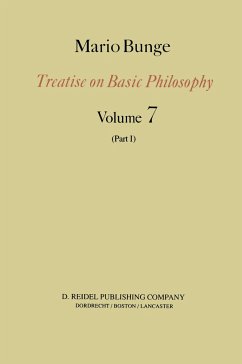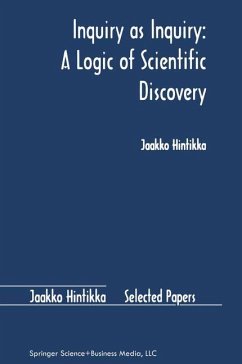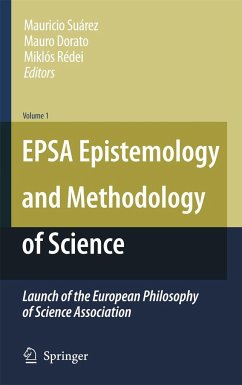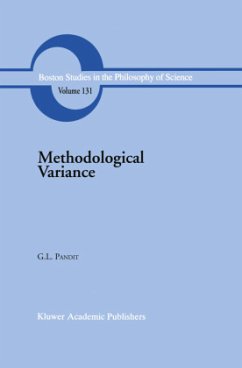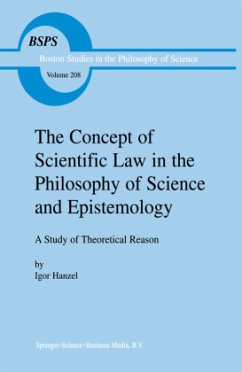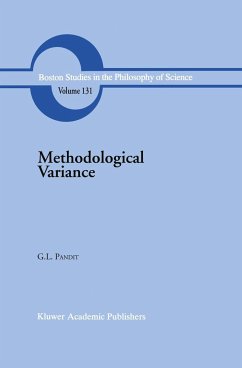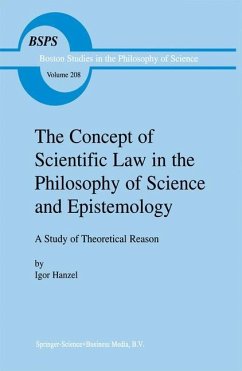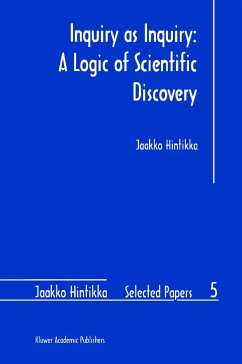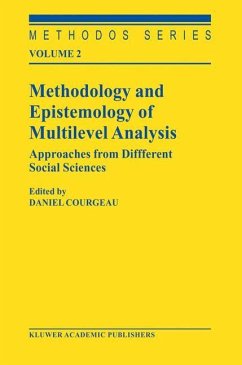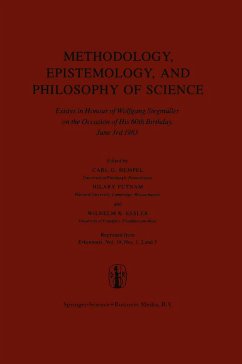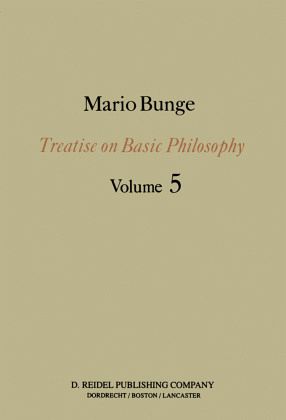
Epistemology & Methodology I:
Exploring the World
Versandkostenfrei!
Versandfertig in 1-2 Wochen
84,99 €
inkl. MwSt.
Weitere Ausgaben:

PAYBACK Punkte
42 °P sammeln!
In this Introduction we shall state the business of both descriptive and normative epistemology, and shall locate them in the map oflearning. This must be done because epistemology has been pronounced dead, and methodology nonexisting; and because, when acknowledged at all, they are often misplaced. 1. DESCRIPTIVE EPISTEMOLOGY The following problems are typical of classical epistemology: (i) What can we know? (ii) How do we know? (iii) What, if anything, does the subject contribute to his knowledge? (iv) What is truth? (v) How can we recognize truth? (vi) What is probable knowledge as opposed ...
In this Introduction we shall state the business of both descriptive and normative epistemology, and shall locate them in the map oflearning. This must be done because epistemology has been pronounced dead, and methodology nonexisting; and because, when acknowledged at all, they are often misplaced. 1. DESCRIPTIVE EPISTEMOLOGY The following problems are typical of classical epistemology: (i) What can we know? (ii) How do we know? (iii) What, if anything, does the subject contribute to his knowledge? (iv) What is truth? (v) How can we recognize truth? (vi) What is probable knowledge as opposed to certain knowledge? (vii) Is there a priori knowledge, and if so of what? (viii) How are knowledge and action related? (ix) How are knowledge and language related? (x) What is the status of concepts and propositions? In some guise or other all of these problems are still with us. To be sure, if construed as a demand for an inventory of knowledge the first problem is not a philosophical oneany more than the question 'What is there?'. But it is a genuine philosophical problem if construed thus: 'What kinds of object are knowable-and which ones are not?' However, it is doubtful that philosophy can offer a correct answer to this problem without the help of science and technology. For example, only these disciplines can tell us whether man can know not only phenomena (appearances) but also noumena (things in themselves or self-existing objects).





